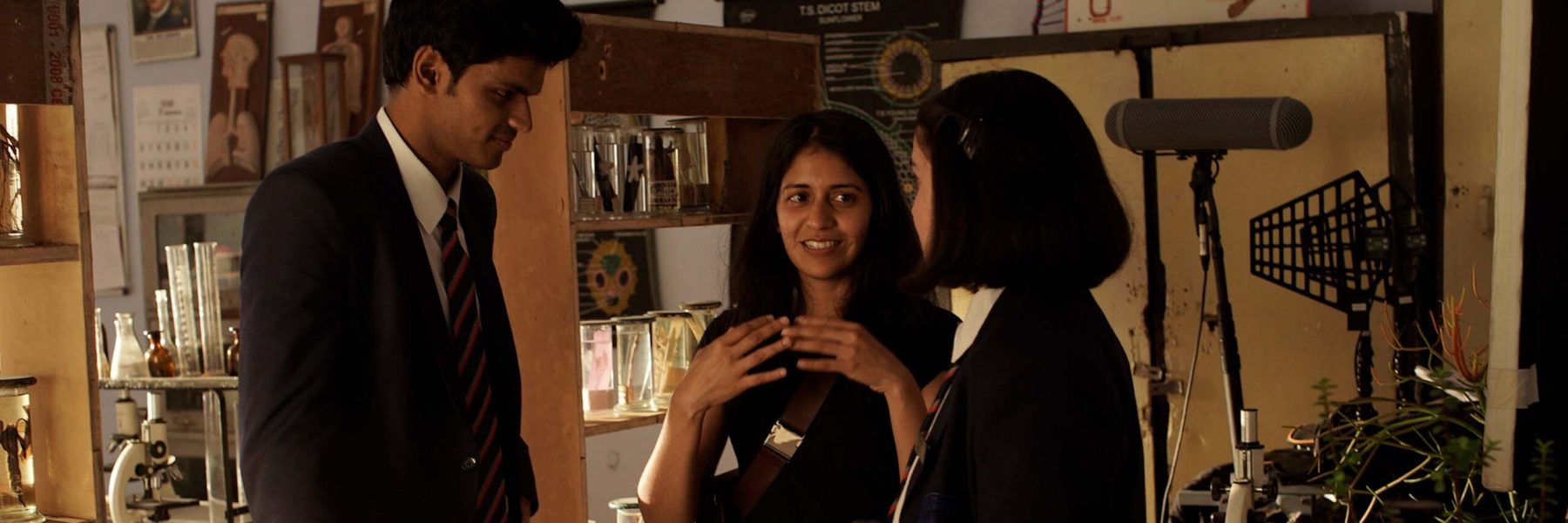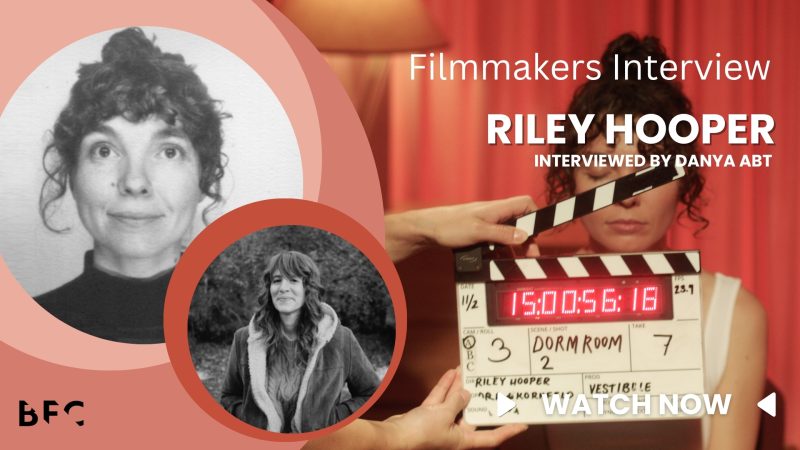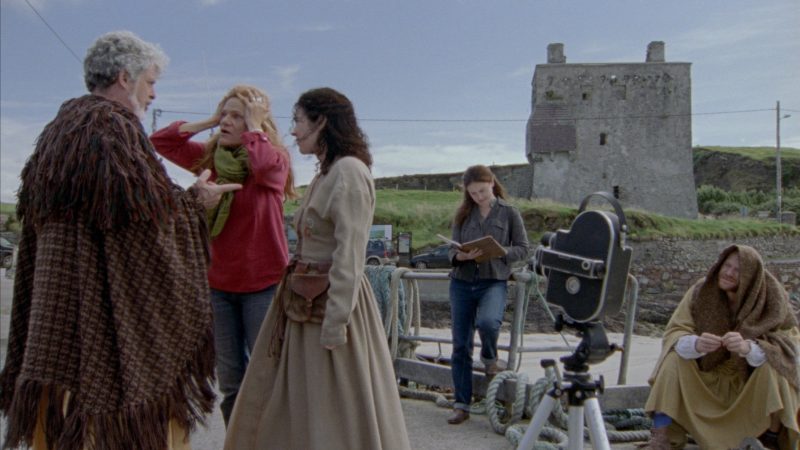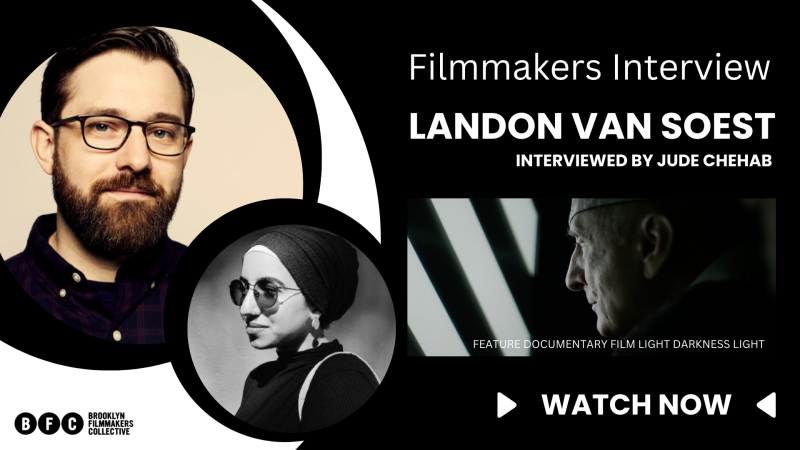Interviewed and edited by Carrie Hawks
August 2024
Shuchi Talati is a writer, director from India whose work challenges dominant narratives around gender, sexuality, and South Asian identity.
Her feature film, Girls Will Be Girls (2024), premiered in competition at Sundance where it won an Audience Award and a Special Jury Award. Girls has been a recipient of Aide Aux Cinémas du Monde and Sørfond grants, and the ArteKINO and VFF Talent Award at the Berlinale Co-Production Market. It has also been selected for Gotham Week, Berlinale Script Station and Cine Qua Non Script Lab.
Fellow Brooklyn Filmmaker Collective member, Carrie Hawks, interviewed Shuchi about her writing process and how being a member of BFC has impacted her process for the inaugural issue of the newsletter that reveals more about the creative practice and their shared film community.
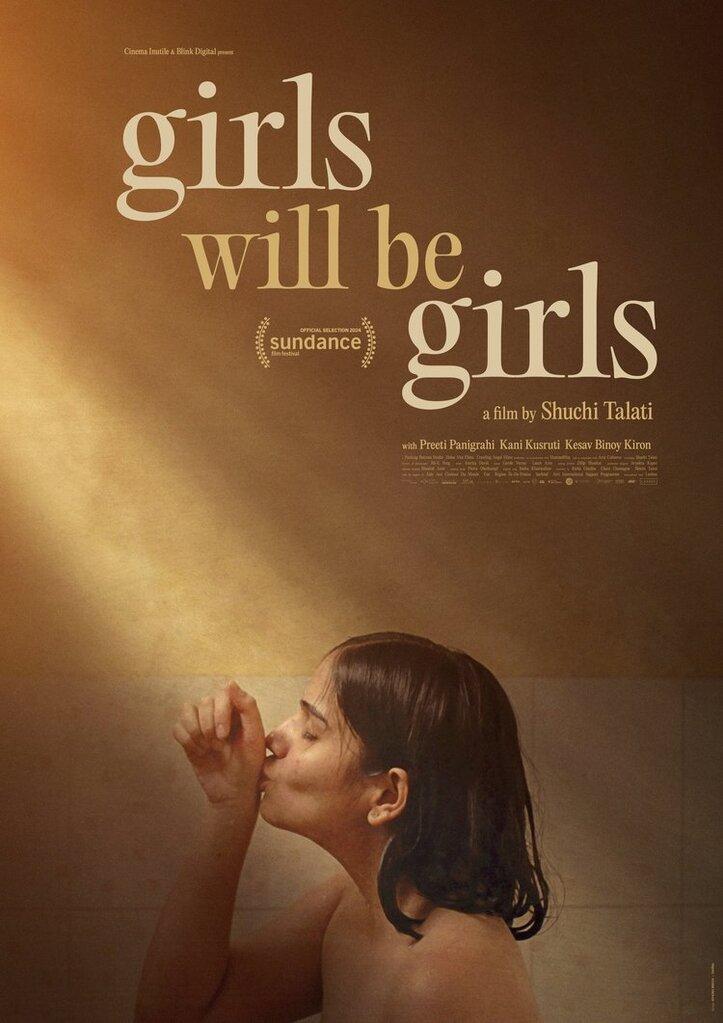
Carrie Hawks: How do you work through iterations of a script? How do you let new ideas and revisions come through and decide what elements of the story will not change despite external critiques?
Shuchi Talati: Once I’m ready to revise, I first print the script and try to read in a different room than where I write. I am trying to distance myself from the writing. I mark up the hard copy and scribble notes all over the margins. Once I’m done with the process, I try to extract the biggest takeaways which will be the focus of the next rewrite. The small stuff can come later.
If I’m doing a structural overhaul, I start with index cards. I find the tactile process of handwriting the cards, moving them around very helpful. It’s also psychologically easier to start the rewrite there because it feels low stakes. The closer it gets to the screenplay format, the closer it gets to someone else reading it and that begins to feel scary.
Many of my early drafts were page-one rewrites, and even later in the process, I don’t like to go in and tinker on a previous draft. I like to start with a new document. I interrogate each decision as I copy-paste a scene over. I also frequently rewrite scenes from scratch. As you work on a project, you begin to understand it more deeply, you have a better read on the characters, and I like to discover what it means to start writing a scene from this place of greater knowledge. Then I take the best from the previous and the new versions and combine them.
Your feature, Girls Will Be Girls, which premiered at Sundance, winning accolades, and will be released in theaters this September, who and when did you ask for feedback as you developed the project?
The beginning of the process is typically solitary but once I had a somewhat coherent draft, I let my husband, who is also a filmmaker, read it. He is aware that in the early stages, I’m just looking for reassurance and encouragement and he’s good at saying, “this is great, keep going.” Even if I know that’s only partially true, I find it helpful.
I brought the next draft to the Brooklyn Filmmakers Collective writing group. This is a trusted group where I can count on the feedback to be insightful but also supportive. And after the passed through the BFC, I felt like it was ready for script labs and markets so I started applying to those.
And as team members joined — producers, cinematographer, editor — I listened carefully to their feedback. Their craft gives them each a unique perspective on the script.
What do you do after receiving an abundance of feedback? You’ve been to some script residencies and support programs, how do those help in development of your idea?
I always try to get feedback in a conversation and ask permission to record it. And assuming it’s helpful feedback — which is usually the case because I’m sharing with trusted people — I listen back to the recording twice. The first time, I’m just listening and thinking. The second time, I start jotting down things that I find helpful or exciting, and by this point, I’m hopefully starting to have some ideas too.
I love good feedback especially when it pinpoints an issue I’ve sensed but have not wanted to see, or have not been able to articulate to myself. And I pay attention to common themes in things that are not working and take those seriously if they recur.
It takes me a few days to digest and be ready to tackle the writing again. I don’t have all the solutions when I resume work but I try to start with the biggest notes, the things that require a structural overhaul, or changing a character.
I also went to a few script labs where you receive a lot of feedback in a short amount of time. Sometimes you’re expected to incorporate it into a new outline, or pitch, while you’re at the lab. And when I’m hearing from a lot of smart people I respect, it can become hard to hear myself. I found myself overcorrecting — I’d address the feedback and then feel like I’d drifted too far from the film I wanted to make. And then I’d course correct. That seems normal to me. Sometimes the better, the more subtle, the truer way to address feedback is not immediately apparent.

The pitching process feels daunting and obscure. How did you find and approach potential investors, producers, and collaborators?
I mostly pitched in the context of a market — my film was selected at the Film Bazaar Co-production Market in India, Gotham Week in NYC, and the Berlinale Talent Project Market. The good thing about each of these is that everyone who is coming to meet you has read a little about the project. So it’s a self-selecting group and you can count on a certain degree of interest. There didn’t seem to be another way to access investors and producers as I didn’t have representation then (I do now).
The first market I went to, Film Bazaar, required us to make a pitch video. And while I resented this extra labor, I ended up being glad because we used the pitch in every grant application and in first contact with everyone as it captured the story, the tone, and also became a way for folks to know me a little.
You started the UnderCurrent lab for women who want to work in lighting and as grips for films, then worked with one of the graduates. Would you describe that training process and what support you got to run in while also developing your project?
Lighting departments in India, as in many parts of the world, have almost no women technicians. This makes it hard for women to imagine themselves in these roles, let alone break in.
One of our co-producers, Tanya Negi, had the idea to create UnderCurrent. The first seed funding came through a grant from Berlinale Talents called the Mastercard Enablement Programme which supports social initiatives in film. Soon after, Light N Light, one of India’s largest lighting rental houses, came on board with an offer of studio space, equipment and teachers. So it all quickly became real!
We put out a call for applications not knowing if there would be any interest but 40 women applied and 9 were able to join the programme. The training was conceived as a one-week hands-on intensive taught by a senior gaffer and interspersed with masterclasses by other cinematographers and gaffers. And after that, we offered each of the trainees a stipend for 2 months so they could intern on sets with the Light N Light crews.
One of our graduates, Chaitali Mitra, ended up working on the set for Girls Will Be Girls and that was such a thrill. And several of our trainees are working in the industry and four of them have started gaffing!
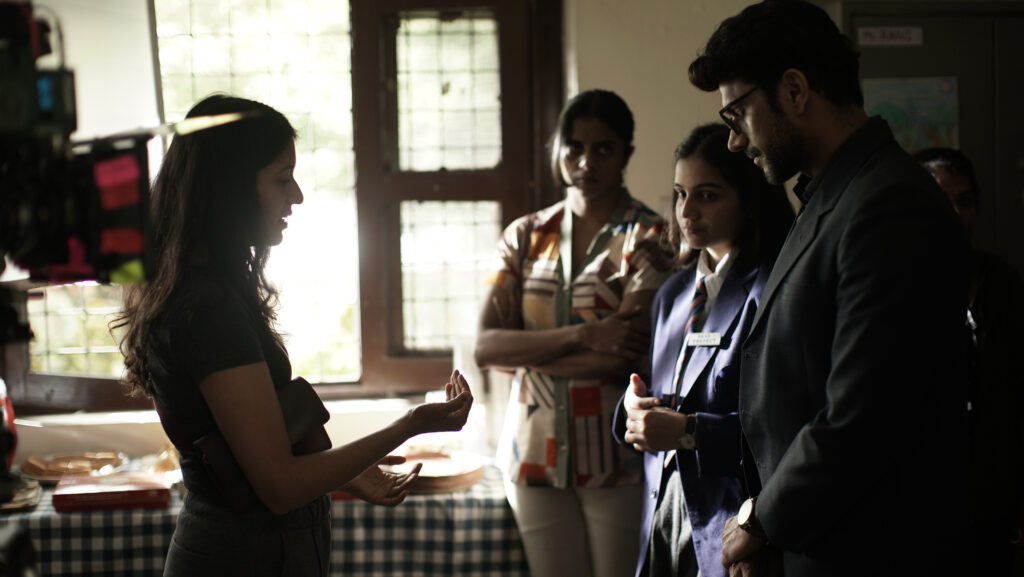
As your film goes out in the world, how did you handle any feelings of self-doubt? Or if you went through with confidence, what mantra/practice/mindset allows you to move in that way?
I had plenty of self-doubt during the making of the film and at each stage, I leaned on collaborators to bolster me. During writing, my producers and cinematographer were encouraging readers. During the shoot, I leaned on my husband and co-producer, Kent Bassett, to tell me if I was missing something big. And during the edit, I had our incredible editor Amrita David.
And at each stage, I was lucky to have the time to do everything I could possibly do. I’d written and rewritten until I had tried every idea I had. On set, I fought for every scene and worked with actors to get every nuance we could find. And in the edit, we worked and we tested the cut with trusted viewers, and then repeated that several times over. The end result is that I feel really content with the film. It’s not perfect but I know I did everything I could. That gives me a certain confidence as it goes out into the world.
And the Sundance premiere was so magical that it gave me faith that people connect to the film and are moved by it. It’s a good collective viewing experience. Of course, there will be those who won’t like it, but the ones who do,like it A LOT. And I made this film for them.
A model student, 16-year-old Mira (Preeti Panigrahi in a radiant debut performance) is the first-ever female prefect in charge of enforcing rules at a straitlaced Indian boarding school in the Himalayas. Despite her ambition and primness, she can’t help but fall for new student Sri (Kesav Binoy Kiron), and steals away with him to flirt and stargaze. With frankness and sensitivity, writer-director Shuchi Talati uncovers the contradictory layers of Mira’s sexual awakening, the complicated feelings triggered in her protective, unfulfilled mother, and the school’s lax penalties for boys’ transgressive behavior. Winner of two prizes at the 2024 Sundance Film Festival: the World Cinema Drama Audience Award and a Special Jury Award for Acting for Panigrahi.
This interview was originally published in the BFC Newsletter. Subscribe to get updates with more interviews.
Copyright © 2024 Brooklyn Filmmakers Collective. All rights reserved.

